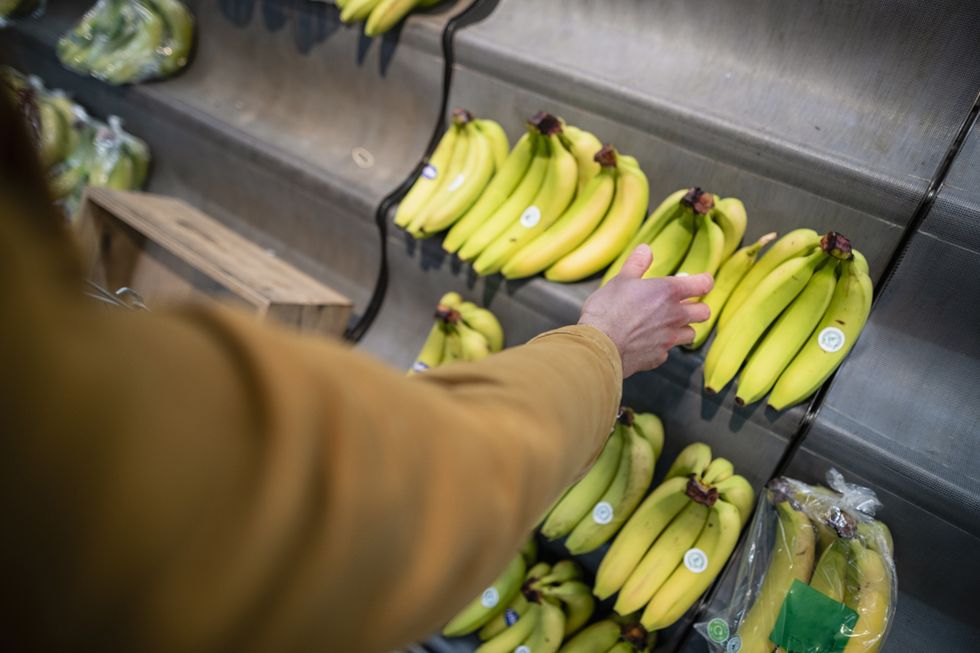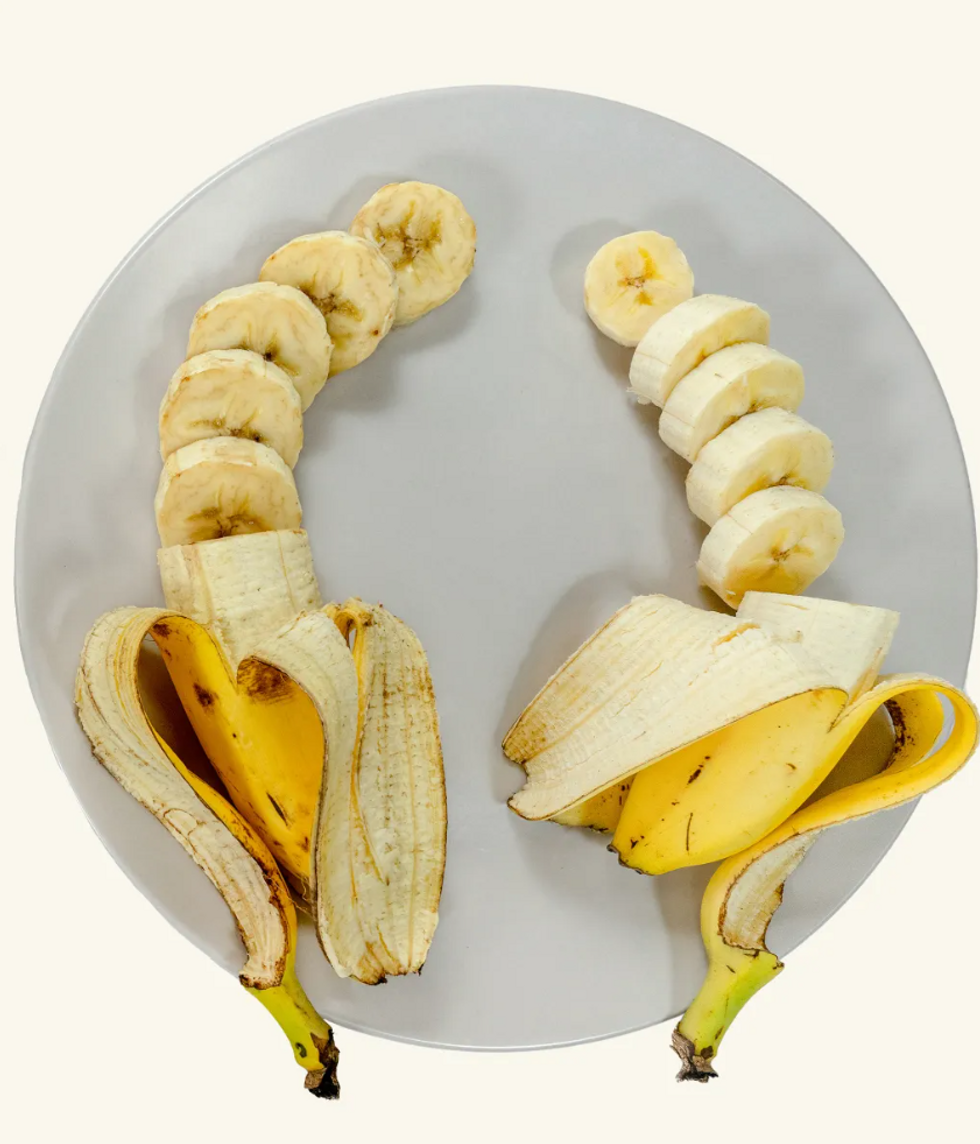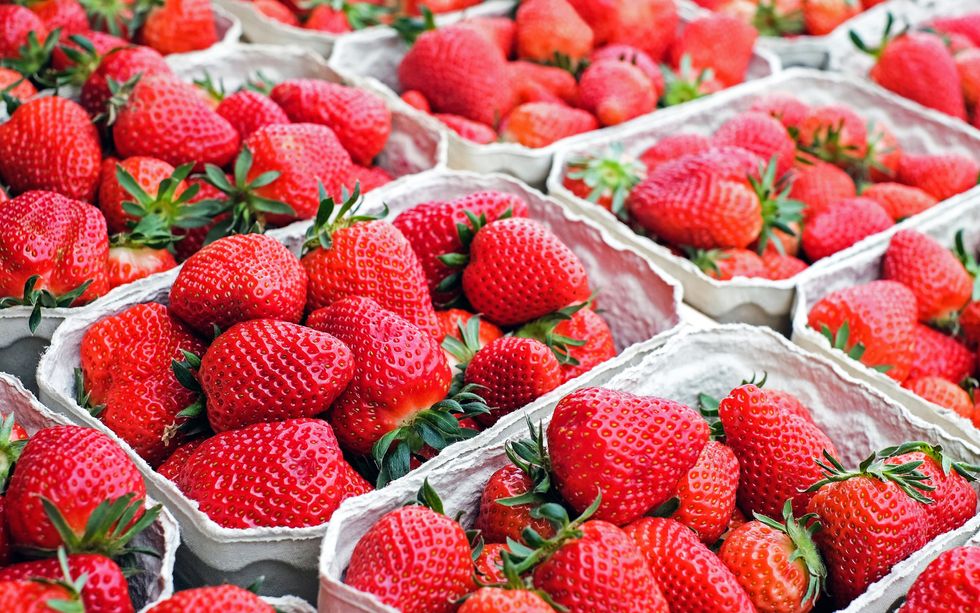Gene-edited superfruit including bananas that 'don’t go brown' to hit British supermarkets in months

Other innovations include virus-resistant sugar beet, rust-resistant wheat and tomatoes that boost vitamin D levels
Don't Miss
Most Read
Gene-edited superfruits could be on British supermarket shelves as early as next year, following new legislation set to pass through Parliament.
Bananas that don't go brown, strawberries that last for weeks, and tomatoes boosted with vitamin D are among the innovations awaiting approval.
Scientists say the proposed rules will allow British consumers to benefit from tastier, healthier food with a lower environmental impact.
The legislation has already passed through the House of Commons and faces a final reading in the Lords on Tuesday.

Gene-edited superfruits could be on British supermarket shelves as early as next year
|Getty
One of the first applicants is likely to be Tropic, a company in Norwich which has developed bananas that remain unblemished for up to 24 hours after peeling.
The company is already growing its crop in Colombia, Costa Rica and the Philippines.
"We could not be more excited about the UK," said Gilad Gershon, Tropic's chief executive. "Most of our team lives here. I personally would love to be able to go to the supermarket and buy our bananas to feed my family."
Gershon believes it would take about a year from application until the product could be imported.
Another company watching the legislation closely is US biotech business Simplot, which has created strawberries that last up to three weeks.
MORE LIKE THIS:

A normal banana vs gene-edited banana from tropic
|Tropic
David Hirschi, Simplot's vice-president of plant sciences, said he was hopeful the legislation "will lead to our ability to apply for approval of our gene-edited strawberry and other food crops in the future".
Other innovations include virus-resistant sugar beet, rust-resistant wheat and tomatoes that boost vitamin D levels, developed by the John Innes Centre.
Unlike controversial GM methods, gene-editing doesn't insert genes from other species but makes targeted changes to a plant's existing DNA.
Professor Cristobal Uauy, incoming director of the John Innes Centre, explained: "Genome editing allows us to do one particular edit in one particular place in the genome, in a very targeted manner."
Brexit allowed England to differentiate "gene editing" from "genetic modification" in its regulations.
The Genetic Technology Act passed in March 2023 permitted field trials in England for the first time.

David Hirschi, Simplot's vice-president of plant sciences, said he was hopeful the legislation 'will lead to our ability to apply for approval of our gene-edited strawberry and other food crops in the future'
| PEXELSDaniel Zeichner, minister for food security, said: "We can turbo charge the natural breeding process our farmers have used for generations to create food that's more nutritious."
If the legislation passes, a six-month period will follow for Defra and the Food Standards Agency to prepare regulations.
From autumn, companies can apply for permission to introduce their plants into the food chain.
Defra will assess whether the plants could have been bred traditionally, while the FSA will evaluate their safety for human consumption.
Each application will require personal sign-off from a health minister.
Tropic hopes to have its non-browning bananas on shelves by the end of 2026.
A public register of precision-bred crops will be maintained, though labelling them as such won't be mandatory.











